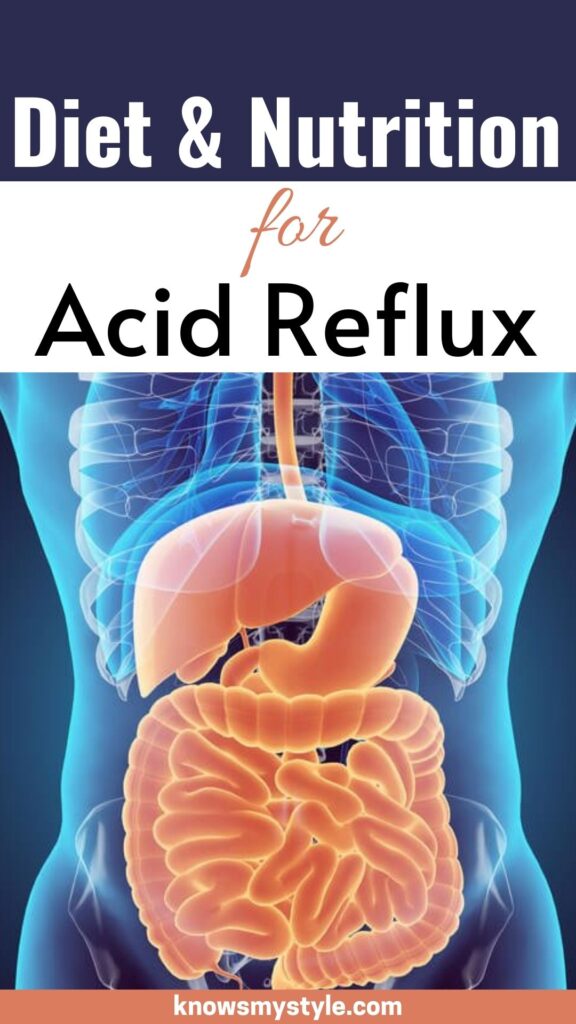Treatment for stomach pain depends on the underlying cause of the pain. Some common causes of stomach pain include indigestion, gas, infection, and inflammation.
For indigestion, over-the-counter antacids, such as Tums or Rolaids, can help neutralize stomach acid and provide relief. In some cases, a doctor may prescribe a proton pump inhibitor, such as omeprazole, to reduce the production of stomach acid.
Gas can be relieved by passing it, taking an over-the-counter gas relief medication such as simethicone, or using herbal supplements like chamomile, peppermint, or ginger.
If the stomach pain is caused by an infection, such as a stomach virus or food poisoning, the best treatment is to let the infection run its course and to stay hydrated. Over-the-counter pain relievers can help alleviate any discomfort.
If the stomach pain is caused by inflammation, such as from Crohn’s disease or ulcerative colitis, a doctor may prescribe anti-inflammatory medications, such as sulfasalazine, to reduce inflammation and alleviate pain.
It is always important to check with your doctor if you have persistent stomach pain or if it is accompanied by other symptoms such as vomiting, blood in the stool or fever, to know the exact cause, and get right treatment accordingly.
If you have frequent heartburn and stomach pain? Then you might be suffering from acid reflux which is the most common cause of Stomach Pain.
What exactly is Acid Reflux?
An acid backflow from the stomach causes acid reflux. It may cause pain in the chest, heartburn, or other symptoms which can be uncomfortable.
There are several reasons why this condition develops, but one is that the lower esophageal sphincter becomes weak or damaged. The lower esophageal sphincter is closed so food doesn’t enter the esophagus from the stomach.
Some foods like fruits and vegetables, which contain many alkaline compounds, may help to lower the amount of stomach acid and alleviate symptoms.
Acid from the stomach can cause irritation and pain in the esophagus when it makes contact.
I will give you some tips about what to eat and not eat to reduce or avoid getting acid reflux.
Treatment For Stomach Pain

Common Symptoms that you can have.
Heartburn is a symptom of acid reflux disease. It causes a burning sensation in the stomach or chest after eating certain foods, which may cause vomiting or reflux. If too much acid enters the esophagus, it can cause nausea and other symptoms.
Other symptoms include:
- dry cough
- sore throat
- bloating
- burping or hiccups
- difficulty swallowing
- lump in the throat
There can be a lot of foods that have the potential to bring on symptoms for those who have acid reflux disease. There is no “one size fits all” diet, so everyone’s choices will depend on their symptoms.
To identify your triggers, keep a food diary and track the following:
- what foods do you eat
- what time of day do you eat
- what symptoms do you experience
Keeping a diary for at least a week can help you maintain your diet long-term. You could go further to identify specific foods or drinks that make it difficult for you.
If you have too much acid in your stomach, you’re prime to experience a range of digestive complications. It is your starting point for planning your diet. It can help you minimize and control symptoms.
Below is a list of foods that you can incorporate into your diet to manage symptoms.
Vegetables
Vegetables are a great source of a nutritious diet, and it’s essential to be aware of which one can help reduce stomach acid. They are low in sugar or fat, which makes them safe to eat. Some healthy choices include green beans, asparagus, broccoli, leafy greens, potatoes, and cucumbers.
Ginger
Ginger is a popular and beneficial spice that you can use in lots of recipes and drinks. It has specific anti-inflammatory properties and offers treatment for heartburn and other gastrointestinal problems. You can also eat or drink ginger root to feel better without taking prescribed medicines or choosing healthcare aides such as very spicy food.
Oatmeal
Oatmeal is a healthy breakfast alternative for many people to incorporate into their diet. It is advised to integrate whole grains such as oatmeal and brown rice into the daily meal plan to reduce the risk of digestive problems like acid reflux.
Non Citrus Fruits
Non-citrus fruits, like watermelons, contain a lot of water. The effects of this on the stomach depending on how much you eat and the kind you choose. You can also include fruits like apples, pears, or bananas that will cause fewer reflux symptoms.
Lean Meats and Seafood
You can help reduce acid reflux symptoms by avoiding high-fat meats like beef, pork, and lamb. Lean meats such as chicken, turkey, fish & shellfish are generally lower in fat which is helpful when it comes to controlling this digestive issue. Try cooking them as grilling, roasting, or poaching.
Egg Whites
Eggs contain varying amounts of nutrients, such as protein and fat. Egg yolks are high in cholesterol and can cause symptoms such as nausea and burping. They should be avoided by people with a history of reflux or other gastrointestinal problems. But consuming egg white can be a good choice.
Healthy fats
You can reduce your consumption of saturated and trans fats by replacing them with healthier unsaturated fats. These include avocados, walnuts, flaxseed, olive oil, sesame oil, and sunflower oil.
Lemon Water
Lemon juice is generally considered to be very acidic. However, a small amount of lemon juice mixed with honey and warm water can neutralize stomach acids and produce an alkalizing effect. In addition to that, honey contains natural antioxidants that give it good properties for health.
Apple Cider Vinegar
Apple cider vinegar has been proven as a cure-all for many disorders, including acid reflux. Unfortunately, there is not enough research to show this claim holds, but many people swear by its effectiveness.
Don’t drink without diluting it! It does contain strong acids, which can irritate the esophagus. Drink small amounts of it with warm water accompanied with meals.
Milk
Does milk help with heartburn?
People recommend milk as a source of calcium due to its ability to relieve heartburn. However, there are many types of milk that you should know about before deciding on which one is best for your needs. Whole milk is the classic option for this purpose, but skim, and other variations are also effective.
Some dairy products (namely milk, yogurt, and cheese) can worsen acid reflux symptoms if they’re not ingested in moderation. Skim milk is a temporary buffer that prevents heartburn from worsening.
Low-fat yogurt has the same calming properties as a healthy dose of probiotics (good bacteria that help digestion).
After watching out the list of food, you should eat to stop acid reflux, let’s find out now which one of the following foods you should try to eliminate from your diet to control all your symptoms.
High Fat Foods
Fried & high-fat food can have some negative effects. For example, these foods are known to decrease the flow of stomach acid back into one’s esophagus.
Eating high-fat foods can raise the risk of your stomach or esophagus causing an irregular heartbeat or reflux by increasing acid production. To reduce the risk of this, you need to lower how much fat you are eating daily.
The following foods are high in fat; avoid them or eat sparingly:
- French fries and onion rings
- whole dairy products, such as butter, whole milk, regular cheese, and sour cream
- fatty or fried pieces of beef, pork or lamb,
- bacon fat, ham, and lard,
- desserts or snacks, such as ice cream and chips
- cream sauce, and creamy salad dressings,
- oily seasonings and greasy foods
Tomatoes and Citrus Fruits
Fruits and vegetables are healthy in moderation, but certain fruits can cause acid reflux symptoms. Some particular fruits & veggies can be problematic – oranges, tomatoes, and grapefruit, for example. If you have problems with frequent acid reflux, please avoid or limit your intake of these foods:
- oranges
- grapefruit
- limes
- pineapple
- tomatoes
- tomato sauce or foods that use it, such as pizza and chili
- Salsa
Chocolate
Chocolate might contain an ingredient called methylxanthine, which can relax the muscles in your lower esophageal sphincter and may promote reflux.
Garlic, Onions & Spicy Foods
Spicy foods can be uncomfortable to eat for some people. They may cause blocked lower esophageal sphincter, a condition that does not require urgent medical attention or hospitalization, although you should avoid these foodstuffs in cases of heartburn. However, these spicy foods are all safe choices if you keep track of your intake and avoid too much.
Mint
Mint flavored foods, such as chewing gum and sweet mints, can cause symptoms that are typical of reflux.
Conclusions:
No diet has been shown yet that can prevent acid reflux. There are certain foods that some people think may help with the symptoms.
It’s been shown that eating fruits and vegetables, especially the high-fiber variety, can help prevent acid reflux.
Adding Fiber to your healthy diet can help to improve skin, digestion, colon health, and sugar control. It also lowers the risk of other conditions, including high cholesterol, hemorrhoids, and acid reflux.
It’s essential to work with your doctor when you aren’t sure if you can include certain foods in your diet. Foods that help to improve acid reflux may vary from one person to another, so working with your doctor can help you make an informed decision.
Thanks for reading; I hope this article has given you some tips that can help you to treat these symptoms. Don’t forget to leave comments if you enjoy reading it……..
What can I do to relieve stomach pain?
- Avoid foods and drinks that can aggravate your stomach, such as spicy foods, fried foods, caffeine, and alcohol.
- Eat small, frequent meals rather than large meals. This can help reduce the amount of stomach acid your body produces.
- Try over-the-counter antacids, such as Tums or Rolaids, to neutralize stomach acid and provide relief.
- Take an over-the-counter gas relief medication such as simethicone to help pass gas and alleviate discomfort caused by gas.
- Try using herbal supplements like chamomile, peppermint, or ginger to help relieve discomfort caused by gas and bloating.
- Stay hydrated by drinking plenty of water, clear broths or caffeine-free teas.
- Rest and avoid strenuous activity for a short time to allow your body to recover.
- Apply a heating pad or hot water bottle to your stomach to help relax the muscles and relieve pain.
- Practice deep breathing or gentle yoga to help relax your body and reduce stress.
It’s worth noting that if your stomach pain is severe or accompanied by other symptoms such as vomiting, blood in the stool or fever, or if the pain persists for more than a couple of days, you should consult with a doctor to determine the cause of your pain and receive proper treatment.
Follow us on Pinterest for more Healthy Tips
